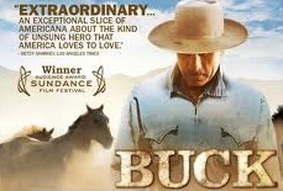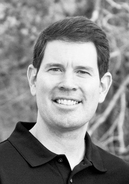 Wanting to be “in control” is part of the human condition. It appears to be our natural tendency to go about trying to control things in our life so we can have some sense of assurance that things will not fall apart. But here’s the deal: What if in reality we are not in control of things? What if the notion that you are “in control” is an illusion? Consider for a moment how we constantly make plans and yet many of them don’t actually turn out the way we envisioned. “If you want to make God laugh, tell him about your plans,” an old saying goes. A wise colleague of mine, who is a psychologist, said to me several years ago these words: “We think we are in control but really control is an illusion in the human psyche. We try to organize, plan, and perfect things in the hopes that all this busy work will minimize the chances of something bad happening. But in reality this hyper-vigilant attitude of trying to control everything is what causes us much unnecessary grief and anxiety.” We really don’t know the future, much less control it, yet we like to think we do. We face a chaotic and complex world, and our natural instinct is to control it however we can. But, our predictions are often wrong and our plans often go awry, and that can be a difficult pill for most of us to swallow. It seems easier to believe in the illusion of control rather than face the prospect that we don’t have as much control as we thought. It really comes down to releasing our attachments to the way we want things to be—whether that be having a person act the way we want, or having the world work the way we want, or having our plans turn out perfectly. When you make the decision to let go of those attachments you will experience more peace and ease flowing into your life. It takes more trust to live like this—it takes trusting in a Divine Power higher than ourselves; trusting in the twists and turns of life; realizing that the grass is not always greener on the other side; believing that if you learn to work with the current of the river rather than frantically trying to steer into what you think are “better” waters, you’ll actually end up where you’re supposed to go, and you’ll enjoy the ride a lot more. If you want to a see this principle in action watch the movie Buck, a documentary about the natural horsemen movement. In this inspiring true story you get to see the amazing effects of Buck Brannaman’s gentle horse training method, which is drastically different than the old style of breaking the horse’s will with a strong hand and forcing them into submission. Buck was the primary individual who inspired the character of “Tom Booker” in the Nicholas Evans novel, The Horse Whisperer, and was the lead equine consultant for the film of the same name. Nicholas Evans gave high praise to Buck when he said, “The one who truly inspired me was Buck Brannaman. His skill, understanding and his gentle, loving heart have parted the clouds for countless troubled creatures. Buck is the Zen master of the horse world.” Now, let’s clarify what it means to ease up on the reins in our own lives. I am not recommending forgoing appropriate self-control. There is wisdom in having self-restraint—such as being able to control our temper so we are not quick to judge and react in a regrettable way. Certainly a measure of self-control is a critical part of navigating life successfully. What I am recommending is letting go of the need or desire to control circumstances, or people, or things that are often outside of our circle of influence. What I have learned in my own life validates Buck’s gentler approach with horses. If you ease up on the reins a bit and let go of the need to control every aspect, you will have more peace, success, and joy in your life. And after all, isn’t that really what we are after on this walk of life. (Excerpt from my book Thriving in Turbulent Times)
3 Comments
|
AuthorJohn's passion is in helping people get unstuck so they can experience their true potential. Before starting his own practice he spent 16 years coaching, consulting, and presenting to Fortune 500 companies, teams, and individuals on how to breakthrough their barriers and magnify their talents. Archives
September 2015
Categories
All
|


 RSS Feed
RSS Feed
